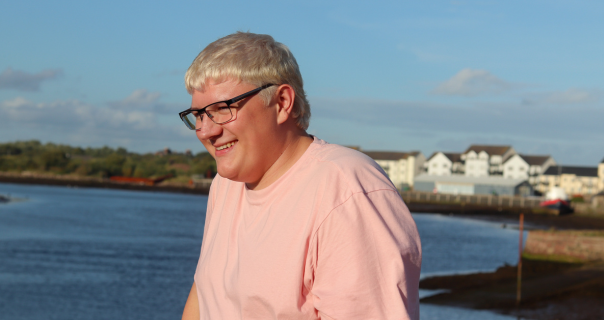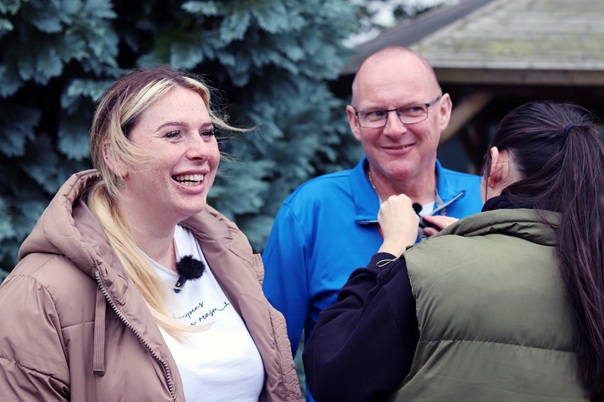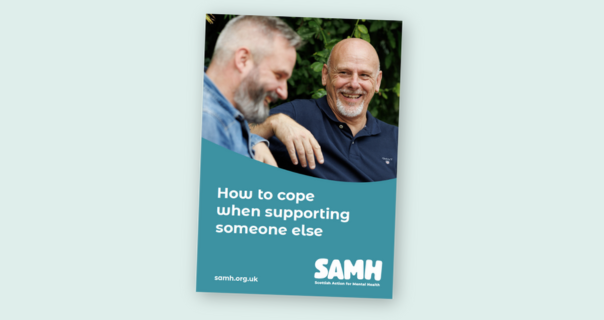I'm worried about a young person
Here you’ll find advice on how to support young people you care about
I need help nowBy finding this page you are already one step closer to helping the young person you care about.
As a parent or carer, it can be very stressful if you are worried that your child might be at risk of suicide.
When someone is having thoughts of suicide it is not always about wanting to end their life. It can be a response to emotional pain or particular things they are experiencing.
Your child may have already talked about suicide or attempted to take their own life. Or they may not have said or done anything, but you’ve noticed changes in the way they act that make you worried.
There are things you can do to help start a conversation and help make sense of their feelings.

Asking about suicide
As a parent or carer you may be worried about starting a conversation about suicide. Research tells us that asking directly about suicide reduces risk, and makes it easier for young people to open up and ask for help.
Whatever the situation, encouraging your child to talk, and listening without judgement can make a big difference. It will show them that they matter, and their voice is heard.
Ask them directly if they are having thoughts of suicide. Prepare for them to say yes, and then listen.
Make time to have conversations with your child in a way that feels right for them. They may prefer to talk side by side for exa on a walk.
It can help to tell them why you are worried. Talk about the changes you have noticed that make you concerned.

This ‘Supporting Your Child’ guide from Papyrus offers practical information to encourage parents to talk to their children about suicide, including information on what to do if they are having thoughts of suicide.
This blog from YoungMinds looks at a parent’s perspective on talking to your child about thoughts of suicide. In this short informative read parent, Suzanne, shares her experience and reminds us of the importance of talking about suicide with your child:-
“The big emotions will still exist even if we are silent. We cannot shut this down, hope it will go away.
Suicidal thoughts do not necessarily lead to being actively suicidal, but even if we don’t think there is an active plan, we have to talk about it."
Enabling Conversations Toolkit

To help young people have conversations about suicide we have co-produced a new toolkit in partnership with the V and A Dundee.
The aim is to give young people support to keep themselves safe - and reach out to a safe person (sometimes called a trusted adult).
Visit the guides for young people and trusted adults.
If you are worried about a young person and they are struggling to find the words to start the conversation this toolkit could help.
To fellow mums (and everyone else)
In this short video from Papyrus, Helen shares advice and talks about her experience after finding out her daughter has thoughts of suicide.
Helen makes a really important point that help is available and you don’t have to do it alone.
Warning signs
You may have noticed changes in the way your child acts or communicates. Or maybe they have made comments that tell you they are finding life difficult. Even if they tell you they are okay, you may have a sense that something is troubling them.
Parent Club has lots of useful information about signs to look out for. They also have information that will help you prepare for a conversation with your child, and the ways you can support them.
Keeping your child safe in a crisis
When thoughts of suicide become overwhelming it can be difficult to cope.
Having a safety plan in place will help keep your child safe in those moments. The plan is a step-by-step guide to staying safe right now so your child can live today and access support tomorrow to keep going.
Papyrus is a charity that supports young people at risk of suicide, and you can download their safety plan here.
If you worried that your child in in immediate danger or has the means to cause themselves harm you should call 999 and request an ambulance.
Looking after yourself
As a parent or carer your priority will be supporting your child. This is very stressful, whether they are in crisis, or if their suicidal thoughts come and go.
Whatever situation you and your child are facing, it’s still so important to look after your own wellbeing.
There are many ways you can take care of yourself – big and small. SAMH’s guidance on how to cope when supporting someone else will help you build strategies for staying safe and well while you care for others.

SAMH’s guide Are You Worried About Someone? explains why someone might be having suicidal thoughts and feelings, what it may be like from their perspective, how to address your own thoughts and feelings about the situation, and how to deal with a crisis if it hits.
You can also find useful tips on Mind’s wellbeing page, including tried and tested ways to reduce stress and improve sleep, and ideas to boost your mood, like spending time in nature or making a self-care kit.
